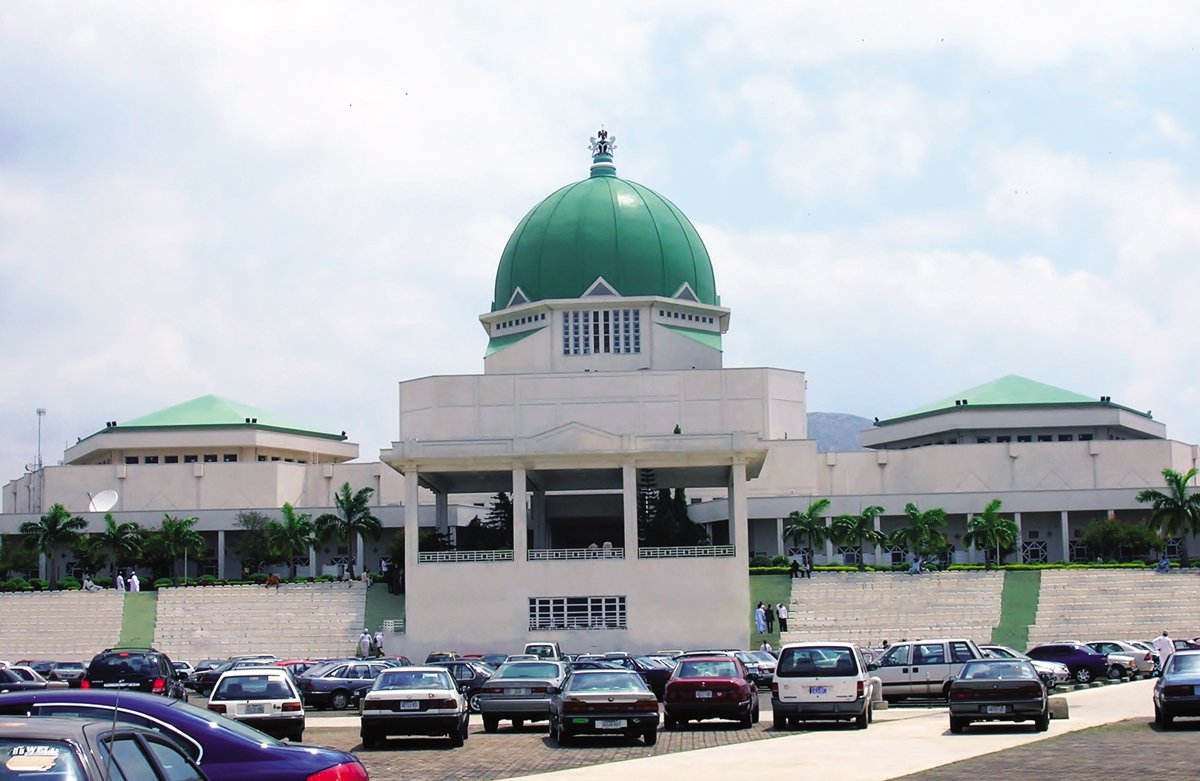
Many stakeholders are intensifying their agitations for restructuring to foster true federalism. Assistant Editor LEKE SALAUDEEN examines the powers of the National Assembly in creating a new political order.
Restructuring was a major campaign issue during the last general elections. Some presidential candidates promised to restructure the country within six months, if elected. Observers say it was an empty promise, because no president can single-handedly restructure Nigeria. The only institution that can create a fundamental legal framework that could alter the governance structure of the country is the National Assembly, working with interested parties.
Experts say where a parliament exists, in whatever form, it has the mandate of a Constituent Assembly and can cause new acts of parliament to come into being. To them, it is wrong to blame President Muhammadu Buhari for not restructuring Nigeria as promised by his party, the All Progressives Congress (APC), when it was canvassing for votes. As a civilian president, he does not have power to decree Nigeria into a new existence.
Former Deputy Senate Minority Leader, Senator Olorunnimbe Mamora, agreed that the power to restructure the country belongs to the National Assembly. He said the primary responsibility of the National Assembly is to fashion out bills that will translate into law for good governance of the country.
Mamora recalled the reports of constitutional conferences set up by the regimes of former Presidents Olusegun Obasanjo and Goodluck Jonathan. They are still in the archives, because there were no enabling acts to back them up. He said: “You cannot enforce them, because they do not have law backing them up. There was lack of political will on the part of those who initiated the conferences.
“Ideally, what should be done after the submission of the report by the conference is that some of the recommendations should be backed up in form of executive bill and be forwarded to the National Assembly for debate and approval by two-thirds majority before sending it back to the to the President for his assent. The National Assembly can act on the reports of conferences seeking restructuring, only if it is backed up by law.
“Besides, there should be constitutional amendment to make provision for referendum. There is no such provision in the current constitution. After the President must have assented to the report of the Constituent Assembly as approved by the National Assembly, the people must also express their approval or disapproval through referendum.
“All this explains the role of the National Assembly in the process of restructuring. The parliament is the first hope of the people. People in the parliament are the representatives of the people. Anything that comes before the National Assembly should be passionately addressed by the parliamentarians who have the knowledge to articulate position on national issues.”
Human rights lawyer, Ayo Sogunro, gave an insight into the role expected of the National Assembly in restructuring the country. He said there is need for a constitutional amendment that will allow the electoral commission to conduct referendums when called upon by the President to do so, or when called opon by a majority of the National Assembly or a percentage of the state House of Assembly; and to allow the National Assembly to start a constitutional conference process, following the results of a referendum to that effect.
Sogunro said such amendments are usually introduced to the National Assembly as an executive bill from the Presidency, to encourage public support and prevent accusations of attempt to destabilise the polity.
He said: “When called upon to do so, the electoral commission would organise a referendum on whether or not the National Assembly should trigger the constitutional conference process. This is the point where advocates of restructuring have to start campaigning nationwide for the benefits of a constitutional review.
“If the Yes votes win, then the National Assembly should draw up a Transition Framework bill. If the No votes win, then we have to respect the majority decision and, may be, campaign harder next time.
“The Transition Framework bill should outline a transition programme, constitutional conference selection process, transition timeframe, constitutional conference procedure and other terms of reference. The Transition Framework may be submitted to the people through another referendum or to state assemblies for adoption.
“If the Transition Framework Bill is passed into law, then a transition government is triggered under the transition programme and a constitutional conference takes place. The conference should not sit in Abuja, it should as much as possible, be a travelling conference. Taking submissions and holding public hearings across the country, from rural and urban areas, directly and through agents. We have voter registration and census systems that can be utilised for the work of the conference.
“The conference collates the results of its consultations and deliberations and submits both a report on its findings and an annotated Draft Constitution to the National Assembly for consideration. The National Assembly ceremonially adopts the report and transmits the Draft Constitution to the Chief Justice of Nigeria for judicial certification. This certification is to ensure that the Draft Constitution complies with principles of international law, human rights, rule of law, and constitutional democracy. The judiciary should not revise the Draft Constitution, but only make notes on what aspect of it are problematic.
“The National Assembly works on the judiciary’s review, if necessary, and sends it back for a second certification. If the judiciary is satisfied, it issues a certification judgment on the Draft Constitution. The certified Draft Constitution is presented to the voting population for a final referendum. This involves Yes or No votes. The effect of each outcome should be pre-determined in the Transition Framework Act.”
Thus, it is the function of the elected representatives in the National Assembly to restructure the country. Those who are agitating for political reforms should put pressure on the party in power and their representatives in the National Assembly. That is where the legislative power of the country resides. Restructuring must not be limited to power sharing, resource control and fiscal federalism alone, but should also embrace broad changes in the charter of citizenship rights, on the structure of the Nigerian military, the police system, the judicial system and the system of civil service.
Former Senate President, Ken Nnamani, said the power to restructure lies in the National Assembly. He said the legislature has the power to amend the constitution in line with the demands of the people. He said: “I believe in restructuring and the National Assembly should be ready to correct the anomalies in the power sharing between the centre and the federating units. For example, a situation where the Federal Government issues driver’s license is unacceptable. It ought to be the duty of the state government.
“I have noticed that some people are afraid of restructuring, but that is inevitable, if we must make appreciable progress as a nation. We have to make certain adjustments because the Federal Government is over burdened by things that state ought to be the responsibilities of the states. I was part of the 2014 National Conference and very important points were raised at the conference, which had the best and brightest brains in Nigeria in attendance.
“Their suggestions and contributions were quite amazing. I urged the government to revisit the recommendations, because they would benefit them a lot. Many good points that will hasten the development and strengthen the unity of Nigeria are contained in the report. People should not be afraid of restructuring, because it would definitely come one day. I support restructuring, but the issue of break-up is what I don’t support.
“My position is not because I was a member of the committee, but because I saw people with in-depth knowledge of certain field making great contributions. This issue of restructuring was addressed extensively at the confab and they achieved what no other experts can achieve, particularly as regards the issue of national development. I really commended whoever put up the confab, because he selected the best brains and great recommendations were reached.”
Lawyer and civil right activist, Monday Ubani, blamed Jonathan for failing to back up the 2014 National Conference with an enabling act. This, he said, has rendered it useless. He said despite the good recommendations contained in the reports, it has been gathering dust in the archives, because of lack of political will. May be the former president didn’t believe in convoking the conference, but was forced to do it for political reasons.
Ubani said for restructuring to take place, there would be need to tinker with the constitution. The amendments must get the approval of two-thirds majority of the National Assembly and two-thirds of 36 state assemblies must support.
He said the National Assembly should address the issue of true federalism, devolution of powers to the federating units, fiscal federalism, resource control and other issues that gives the Nigerian constitution the attributes of a unitary, rather than a federal constitution. In essence, the National Assembly should review the Exclusive and Residual lists, with a view to addressing concentration of too much power at the centre.
Second Republic lawmaker and member of the House of Representatives, Alhaji Ahmad Rufai, said the National Assembly holds the ace on restructuring. He said the presidency can initiate a bill and forward it to the legislature for debate and approval.
He said: “I would say without hesitation that restructuring lies with the National Assembly. The President is not a military president; he cannot change the constitution by decree. The sovereignty lies with the National Assembly, because its members were elected by the people and they represent their interests.
“For those agitating for sovereign national conference, they have to go through the National Assembly. This is possible only if the National Assembly surrenders part of its powers by an Act, which is not a likely scenario. On agitation for referendum, there must be an Act of the National Assembly to create that referendum. It’s not the President that would by fiat or by executive order for referendum.”
Elder statesmen and Ijaw leader, Edwin Clark, believes restructuring is the solution to Nigeria’s prevailing security challenges. He said the security challenges the country is facing will be overcome if it adopts restructuring.
Clark, a former Federal Commissioner of Information, faulted the centralised security architecture in the country which he said could not avert, or respond swiftly to security issues in all parts of the country.
The elder statesman challenged the National Assembly to address the issue of restructuring, because they are representatives of the people. He said restructuring will promote effective governance and development and it will ensure that power devolves from the centre to the other federating units for effective governor.
You may be interested

2024 CHANQ: History Not Kind To Us Against Ghana –Ogunmodede
Webby - December 24, 2024Home-based Super Eagles coach Daniel Ogunmodede says history has not been good to Nigeria when they face rivals Ghana.The home-based…

Ex-Chelsea Star Oscar Returns To Boyhood Club Sao Paulo
Webby - December 24, 2024Former Chelsea midfielder Oscar is returning to his Brazilian boyhood club Sao Paulo after 14 years, which included a long…

‘I’m Incredibly Proud’– Arokodare Talks Up Genk’s Unbeaten Home Streak
Webby - December 23, 2024Tolu Arokodare is full of excitement followingGenk’s historic victory over Anderlecht, reports Completesports.com.Sunday’s win at the Cegeka Arena was the…



















![American Pastor, David Wilson Seen Eating The Box Of Woman Who Isn’t His Wife [Video]](https://onlinenigeria.com/wp-content/uploads/2019/10/american-pastor-david-wilson-seen-eating-the-box-of-woman-who-isnt-his-wife-video-150x150.jpg)








